10 start with E start with E
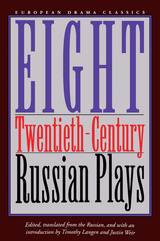
Included in this volume:
Sacred Blood, by Zinaida Gippius; The Unknown Woman, by Alexander Blok; Vladimir Mayakovsky, by Vladimir Mayakosky; The Case of the Entry Room, by Victor Ardov; Squaring the Circle, by Valentin Kataev; Elizaveta Bam, by Daniil Kharms; Grain, by Vladimir Kirshon; and The Guests, by Leonid Zorin.
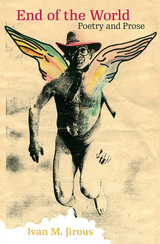
End of the World is the first major collection in English of the works of this legendary Czech “madman.” Although nicknamed for his aggressive and rebellious behavior, Jirous’s writing reveal a refined, sophisticated, and even tender sensibility. Translated in part by Paul Wilson, an original member of the Plastic People, the book gathers his poems and letters from prison, as well as his book-length prose work, The True Story of the Plastic People, alongside critical essays on Jirous’s life and work. End of the World is an ideal introduction to the raucous writer who playwright Tom Stoppard referred to as one of the most interesting personalities in modern Czech history.

On May 25, 1863, after driving the Confederate army into defensive lines surrounding Vicksburg, Mississippi, Union major general Ulysses S. Grant and his Army of the Tennessee laid siege to the fortress city. With no reinforcements and dwindling supplies, the Army of Vicksburg finally surrendered on July 4, yielding command of the Mississippi River to Union forces and effectively severing the Confederacy. In this illuminating volume, Justin S. Solonick offers the first detailed study of how Grant’s midwesterners serving in the Army of the Tennessee engineered the siege of Vicksburg, placing the event within the broader context of U.S. and European military history and nineteenth-century applied science in trench warfare and field fortifications. In doing so, he shatters the Lost Cause myth that Vicksburg’s Confederate garrison surrendered due to lack of provisions. Instead of being starved out, Solonick explains, the Confederates were dug out.
After opening with a sophisticated examination of nineteenth-century military engineering and the history of siege craft, Solonick discusses the stages of the Vicksburg siege and the implements and tactics Grant’s soldiers used to achieve victory. As Solonick shows, though Grant lacked sufficient professional engineers to organize a traditional siege—an offensive tactic characterized by cutting the enemy’s communication lines and digging forward-moving approach trenches—the few engineers available, when possible, gave Union troops a crash course in military engineering. Ingenious midwestern soldiers, in turn, creatively applied engineering maxims to the situation at Vicksburg, demonstrating a remarkable ability to adapt in the face of adversity. When instruction and oversight were not possible, the common soldiers improvised. Solonick concludes with a description of the surrender of Vicksburg, an analysis of the siege’s effect on the outcome of the Civil War, and a discussion of its significance in western military history.
Solonick’s study of the Vicksburg siege focuses on how the American Civil War was a transitional one with its own distinct nature, not the last Napoleonic war or the herald of modern warfare. At Vicksburg, he reveals, a melding of traditional siege craft with the soldiers’ own inventiveness resulted in Union victory during the largest, most successful siege in American history.

A condensed Roman history of non-Roman civilizations.
To Justin (Marcus Junian(i)us Justinus), otherwise unknown, is attributed our abbreviated version of the lost Philippic History by (Gnaeus?) Pompeius Trogus, a massive account, in forty-four books, of the non-Roman world and its civilizations, from mythic beginnings through Alexander the Great, the Hellenistic kingdoms, and Parthia. Trogus’ work thus complemented the monumental history of Rome by his Augustan contemporary, Livy, and in high style traced similar moral themes: rulers and states that lack such virtues as moderation, justice, and piety bring harm or ruin on themselves, and often on their realms as well.
Justin, working at some time in the late second to the late fourth century AD, did not produce a strict epitome or summary but what he calls “a brief anthology”: not unlike Florus (LCL 231), who used Livy’s history as the primary source for a brief but original military history of Rome, Justin freely selected what suited his own purposes, favoring “what makes pleasurable reading or serves to provide a moral,” with an eye to the kind of emotive anecdotes that might be useful to orators. He also blends Trogus’ language with borrowings from literature of subsequent generations. Justin’s anthology became one of the most widely read and influential books in the Middle Ages and Renaissance, indeed the main authority on world history other than Roman, surviving in more than 200 manuscripts.
Also included in this edition are the “Prologues,” summaries of Trogus by some other compiler, which preserve many details that Justin omits or reports differently.

A condensed Roman history of non-Roman civilizations.
To Justin (Marcus Junian(i)us Justinus), otherwise unknown, is attributed our abbreviated version of the lost Philippic History by (Gnaeus?) Pompeius Trogus, a massive account, in forty-four books, of the non-Roman world and its civilizations, from mythic beginnings through Alexander the Great, the Hellenistic kingdoms, and Parthia. Trogus’ work thus complemented the monumental history of Rome by his Augustan contemporary, Livy, and in high style traced similar moral themes: rulers and states that lack such virtues as moderation, justice, and piety bring harm or ruin on themselves, and often on their realms as well.
Justin, working at some time in the late second to the late fourth century AD, did not produce a strict epitome or summary but what he calls “a brief anthology”: not unlike Florus (LCL 231), who used Livy’s history as the primary source for a brief but original military history of Rome, Justin freely selected what suited his own purposes, favoring “what makes pleasurable reading or serves to provide a moral,” with an eye to the kind of emotive anecdotes that might be useful to orators. He also blends Trogus’ language with borrowings from literature of subsequent generations. Justin’s anthology became one of the most widely read and influential books in the Middle Ages and Renaissance, indeed the main authority on world history other than Roman, surviving in more than 200 manuscripts.
Also included in this edition are the “Prologues,” summaries of Trogus by some other compiler, which preserve many details that Justin omits or reports differently.
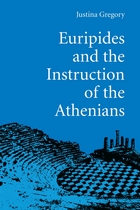

What might we learn if the study of ethics focused less on hard cases and more on the practices of everyday life? In Everyday Ethics, Michael Lamb and Brian Williams gather some of the world’s leading scholars and practitioners of moral theology (including some GUP authors) to explore that question in dialogue with anthropology and the social sciences. Inspired by the work of Michael Banner, these scholars cross disciplinary boundaries to analyze the ethics of ordinary practices—from eating, learning, and loving thy neighbor to borrowing and spending, using technology, and working in a flexible economy. Along the way, they consider the moral and methodological questions that emerge from this interdisciplinary dialogue and assess the implications for the future of moral theology.
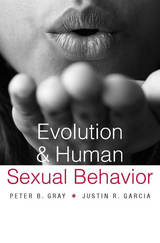
Few things come more naturally to us than sex—or so it would seem. Yet to a chimpanzee, the sexual practices and customs we take for granted would appear odd indeed. He or she might wonder why we bother with inconveniences like clothes, why we prefer to make love on a bed, and why we fuss so needlessly over privacy. Evolution and Human Sexual Behavior invites us into the thought-experiment of imagining human sex from the vantage point of our primate cousins, in order to underscore the role of evolution in shaping all that happens, biologically and behaviorally, when romantic passions are aroused.
Peter Gray and Justin Garcia provide an interdisciplinary synthesis that draws on the latest discoveries in evolutionary theory, genetics, neuroscience, comparative primate research, and cross-cultural sexuality studies. They are our guides through an exploration of the patterns and variations that exist in human sexuality, in chapters covering topics ranging from the evolution of sex differences and reproductive physiology to the origins of sexual play, monogamous unions, and the facts and fictions surrounding orgasm.
Intended for generally curious readers of all stripes, this up-to-date, one-volume survey of the evolutionary science of human sexual behavior explains why sexuality has remained a core fascination of human beings throughout time and across cultures.
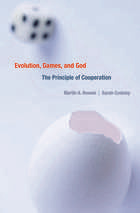
According to the reigning competition-driven model of evolution, selfish behaviors that maximize an organism’s reproductive potential offer a fitness advantage over self-sacrificing behaviors—rendering unselfish behavior for the sake of others a mystery that requires extra explanation. Evolution, Games, and God addresses this conundrum by exploring how cooperation, working alongside mutation and natural selection, plays a critical role in populations from microbes to human societies. Inheriting a tendency to cooperate, argue the contributors to this book, may be as beneficial as the self-preserving instincts usually thought to be decisive in evolutionary dynamics.
Assembling experts in mathematical biology, history of science, psychology, philosophy, and theology, Martin Nowak and Sarah Coakley take an interdisciplinary approach to the terms “cooperation” and “altruism.” Using game theory, the authors elucidate mechanisms by which cooperation—a form of working together in which one individual benefits at the cost of another—arises through natural selection. They then examine altruism—cooperation which includes the sometimes conscious choice to act sacrificially for the collective good—as a key concept in scientific attempts to explain the origins of morality. Discoveries in cooperation go beyond the spread of genes in a population to include the spread of cultural transformations such as languages, ethics, and religious systems of meaning.
The authors resist the presumption that theology and evolutionary theory are inevitably at odds. Rather, in rationally presenting a number of theological interpretations of the phenomena of cooperation and altruism, they find evolutionary explanation and theology to be strongly compatible.
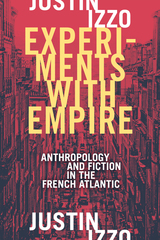
READERS
Browse our collection.
PUBLISHERS
See BiblioVault's publisher services.
STUDENT SERVICES
Files for college accessibility offices.
UChicago Accessibility Resources
home | accessibility | search | about | contact us
BiblioVault ® 2001 - 2024
The University of Chicago Press









